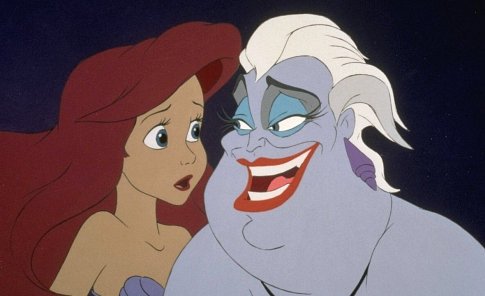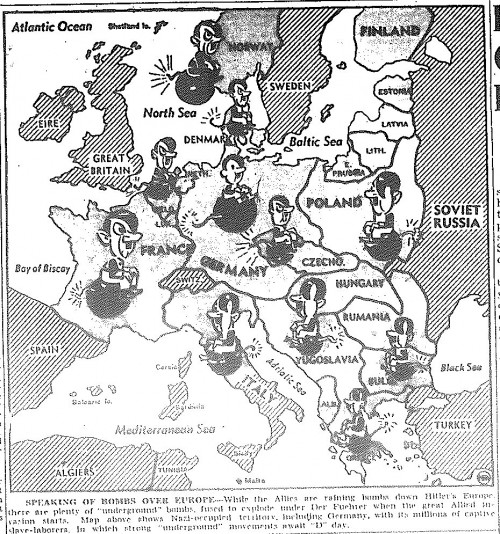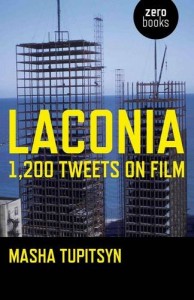Screaming Monsters and Sordid Gays: Ian Bogost’s Alien Phenomenology
I was really looking forward to reading Ian Bogost’s philosophy book, Alien Phenomenology, or What It’s Like to Be a Thing. Two girls who I absolutely admire — one who writes criticism about Thoreau, one who writes plays about Louis Braille — placed praise upon the book, and I was prepared to do similarly.
Ian’s book is bound to object-oriented ontology, a philosophy that posits that “nothing has special status, but that everything exists equally — plumbers, cotton, bonobos, DVDs.” For Ian, the world is composed of units, where “something is always something else.” Humans, the stars of so many philosophies, can neither be separated nor elevated above other things because those things are a part of them and they are a part of those things. While Kant (a bland German boy), Heidegger (a curious Nazi boy), and others put people on a peerless pedestal, Ian puts them in messy dot where millions of encounters occur at once. As Ian explains:
On August 10, 1973, at a boathouse in Southwest Houston, the shovel of a police forensics investigator struck the femur of one of the seventeen corpses excavated that week, victims of serial killer Dean Corll.
The boathouse, the shovel, the police boy, the serial killer — each is a unit, and each unit leads to other units. The serial killer boy probably possessed a mommy and daddy, and his mommy and daddy are units who are entwined with more units. Object-oriented ontology suggests the unceasing character of the Nazis, who were invariably inserting themselves into more land, lives, and histories. Units are all over, and, during World War Two, so were the Nazis.
But not all of object-oriented ontology can be compared to screaming monsters who slaughtered six million you-know-whos and five million ummms. Some of Ian’s philosophy aligns with utterly unpleasant people, like Walt Whitman and Allen Ginsberg. Each of these canonized homosexuals has a penchant for lists. Whitman enumerates his electrified body parts while Ginsberg tells of the objects that have transfixed his tushy. For Ian, “Lists remind us that no matter how fluidly a system may operate, its members nevertheless remain utterly isolated, mutual aliens.” Whitman-Ginsberg types show this shared separateness in a most sordid way. Queer theorist Tim Dean details how homosexuals disclose the inevitable objectification of s-e-x. Disputing Andrea Dworkin’s belief that porn “dehumanizes those whom it fetishizes,” Dean says that all s-e-x, not just the porn kind, “fragments and particularizes.” Such fragmentation is disgustingly displayed in the gay community, whose members, according to Dean, BJ boys through holes in the wall, then spit the c-u-m into a container, which is then funneled into other boys’ tushies.
9/11 and Make-Believe

On the day when al-Qaeda toppled the Twin Towers with commercial airplanes I was very upset, not because thousands of Americans had just died, but because the snack that my mommy always had in the car when she picked me up form school — a yummy, delicious, chocolaty, nutty, and creamy Snickers — had melted.
A lot of people seem to be very perturbed by 9/11, and these types are, according to me, phony, stupid, or both. What turns 9/11 into a tragedy isn’t that tons of humans beings die. Tons of humans beings die all of the time. Right now around 5,000 Syrians are dying per month, and only a tiny percentage of Americans seem to care enough to do anything. 9/11, though, is different because, as Noam Chomsky says, “For the first time, the guns have been directed the other way. That is a dramatic change.” Normally, America’s the country who gets to be grandly violent, like when Bill Clinton sundered a Sudanese pharmaceutical plant, decimating their medicine supplies, causing thousands to die from treatable diseases. But on 9/11 the opposite occurred. The country whose interests, according to Woodrow Wilson, “must march forward” got gashed. People — white people, Capitalist people, Western people — who weren’t supposed to die, died.
The controversial French boy, Jean Baudrillard, says that 9/11 made our “fantasies real.” All of those terrific and terrifying disaster movies — Independence Day, the Transformers, Schindler’s List — had tumbled into America’s tangible territory. The acts actually annihilated USA bodies. But just because Jean used the word “real” doesn’t make it so. For Jean, “reality only exists to the extent that we can intervene in it. But when something emerges that we cannot change in any way, even with the imagination, something that escapes all representation, then it simply expels us.” Just as I can’t kiss that cute Nazi boy in Schindler’s List, nobody was able to cease the Twin Towers’ collapse.
“What we are left with is bodies that are confused: incapable, on a molecular level, of maintaining the basic boundaries that are constitutive of self.” — from Carolyn Lazard’s “How to be a Person in the Age of Autoimmunity” in Cluster Mag, a brilliant essay about illness that is really an essay about everything. (Thanks to Anne Boyer and Danielle Pafunda for the link)
THE ZERO DEGREE NOISELESSNESS OF DEATH: LECTIO V-VIII
LECTIO V: Forget This Memory–Édouard Levé’s Suicide
LECTIO VI: Torture Porn is Capital– Reality & “Solitary”
LECTIO VII: Guy Bourdin’s Spread Legs
LECTIO VIII: The Cinematic Space of Lust
On advertising
httpv://www.youtube.com/watch?v=Ru5gTxAy0L0
The Rumpus editor Stephen Elliott (excerpted introduction to their first monthly Rumpus) at the Make Out Room in San Francisco last night.
Commentary after the break.
Buy Nothingness Day

Adbusters’ Buy Nothing Day, the symbolic commercial day after thanksgiving, passed again in futility. There’s something sadly ironic about a bunch of socialist Canadian intellectuals trying to brand anti-ads to people immune to marketing, and wondering why no one listens. One day, when people study this civilization, the Wal-Mart clerk being trampled to death by shoppers will be read as an allegory of our deep social pathologies.
Not trying to get too existential on your ass, but we are somewhat fucked, so I am hereby launching HTMLGIANT’s Buy Nothingness Day, everyday for the next year. What better way to blend free-market ‘choice’ with the thick vacuum of ontological negation?
Come on people, jump in the Seine.



